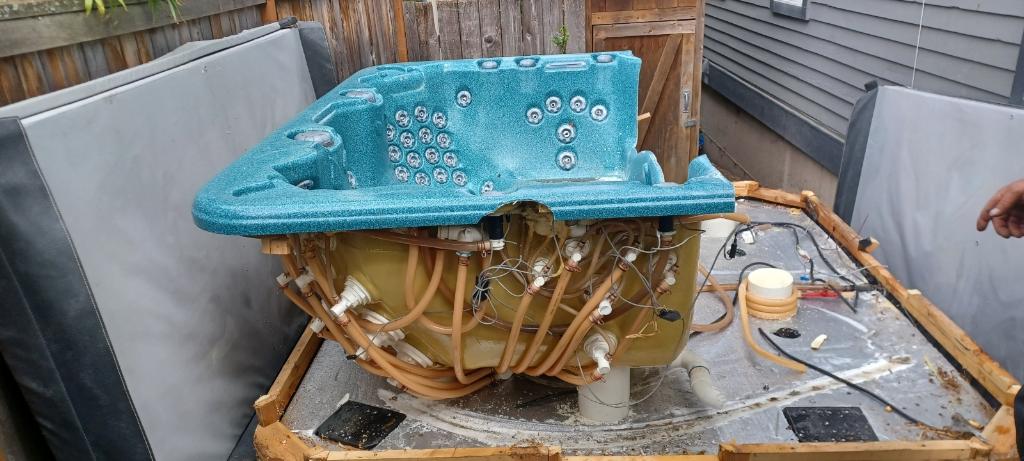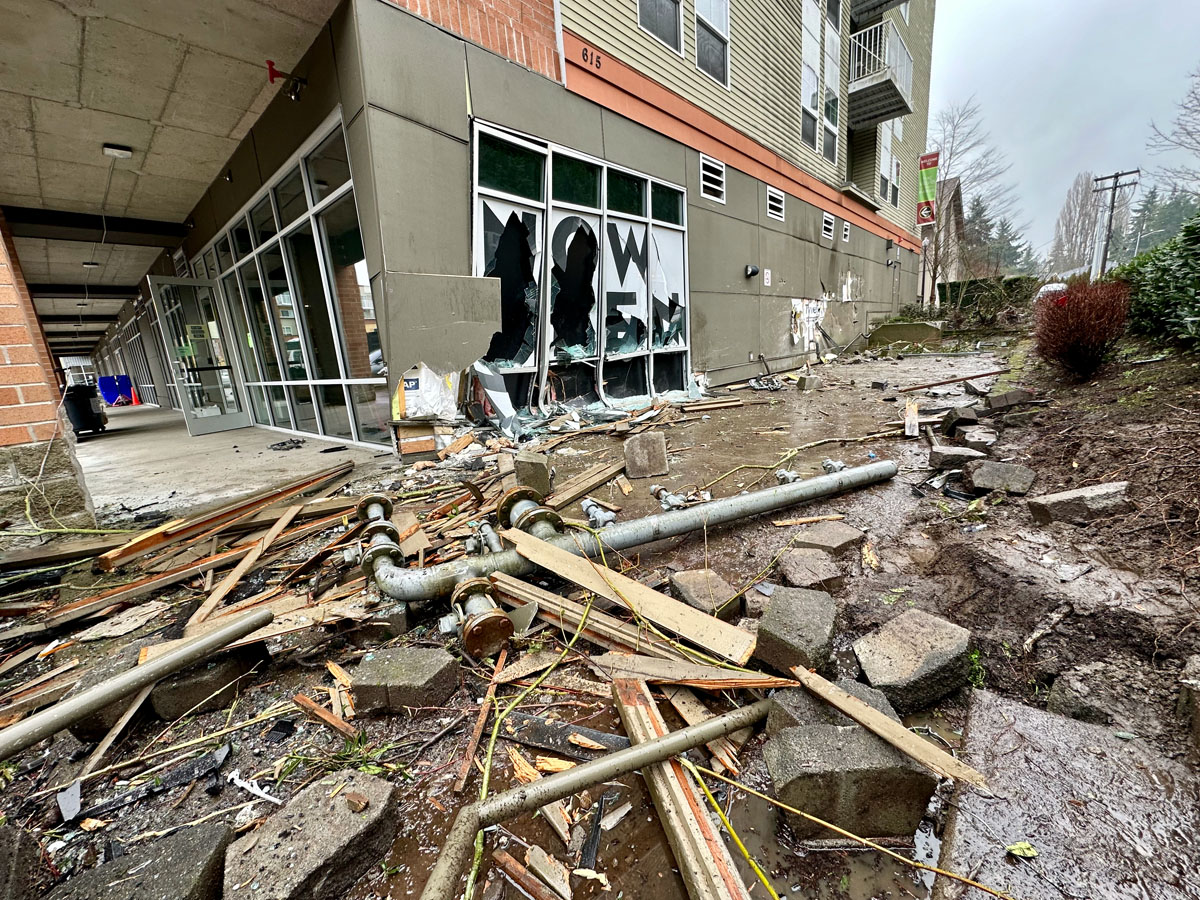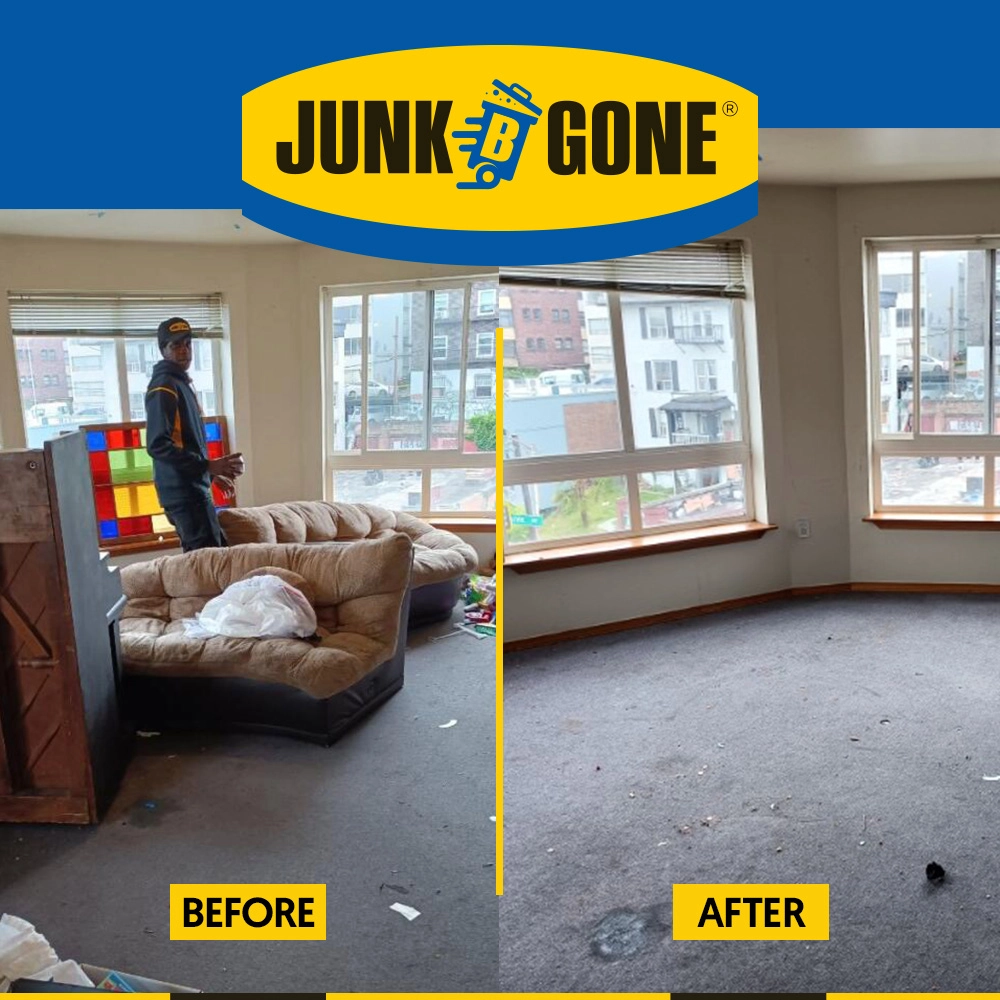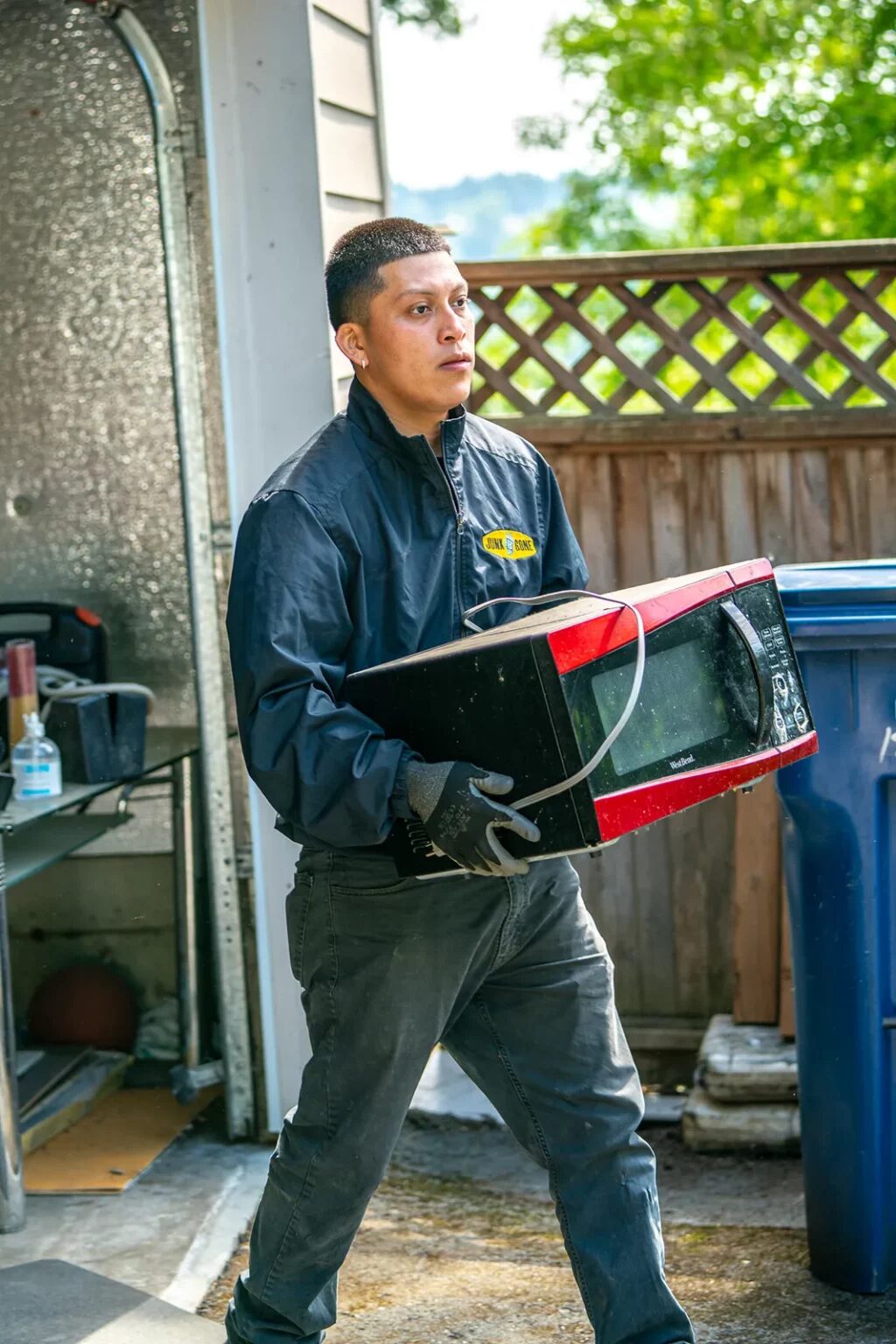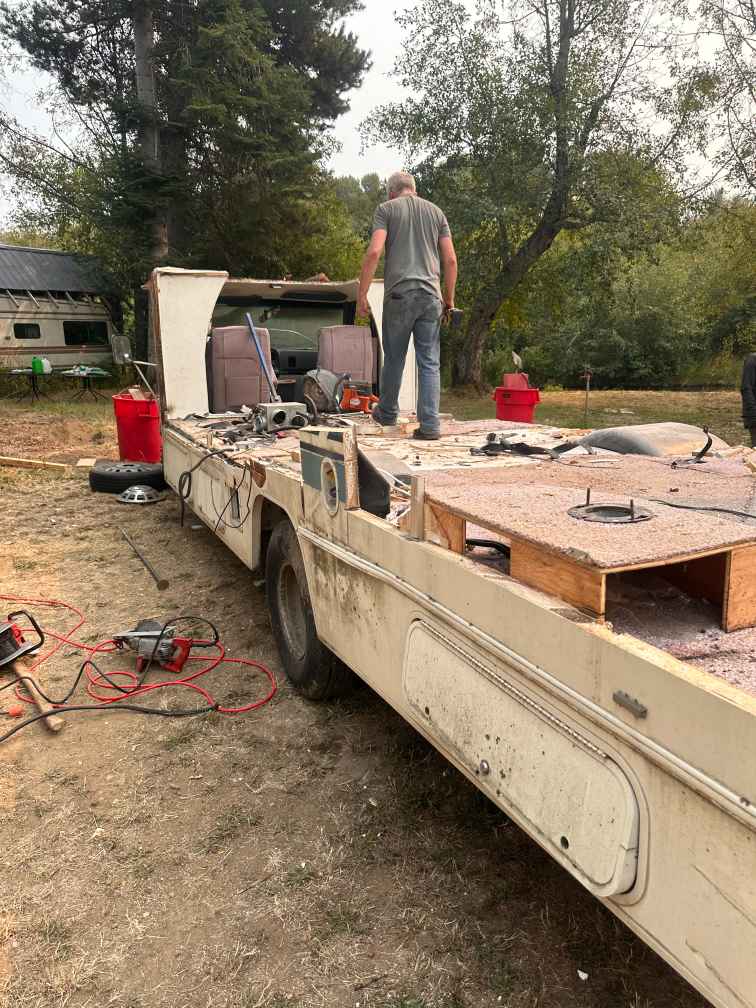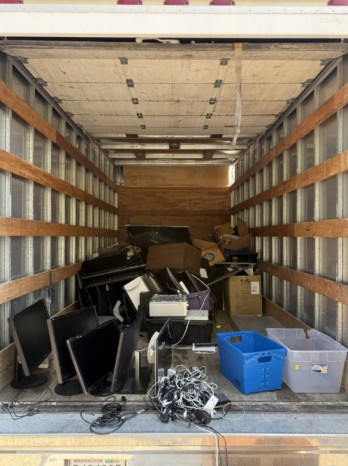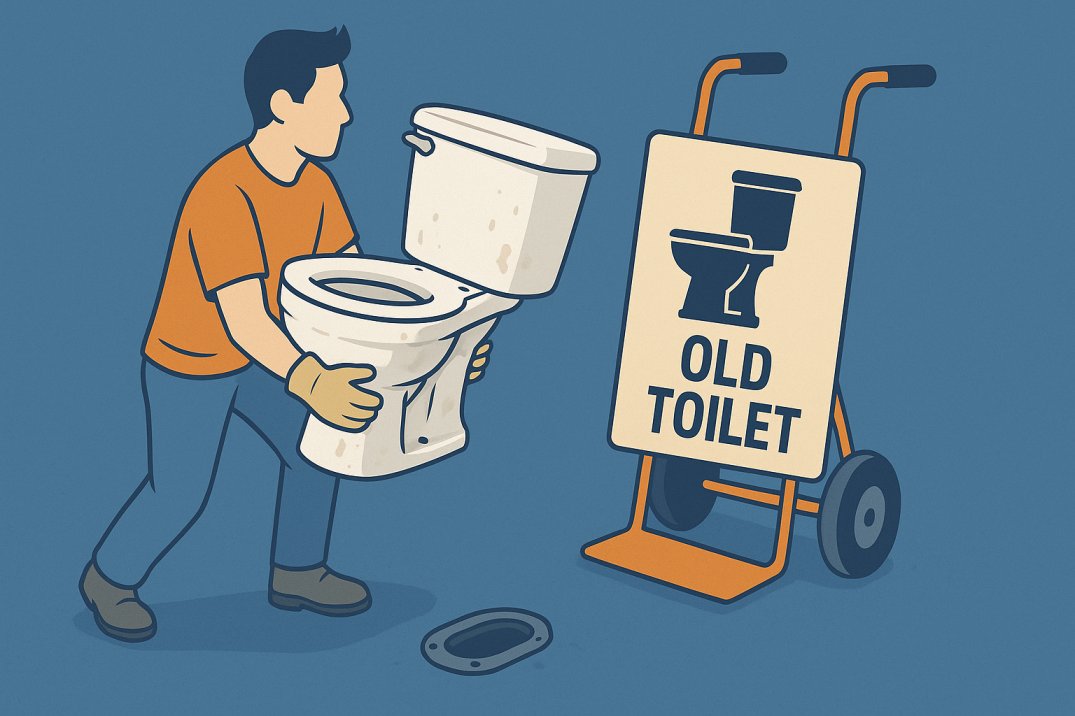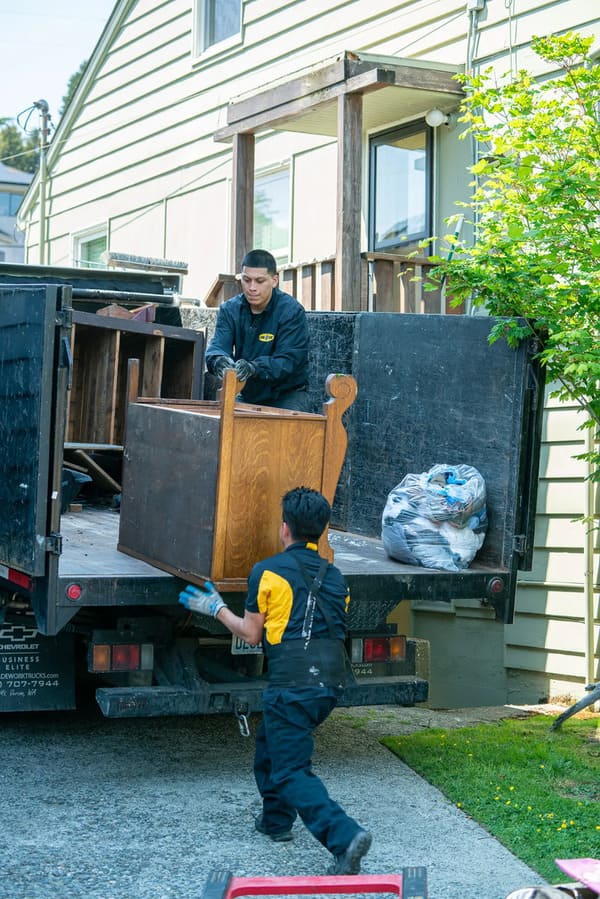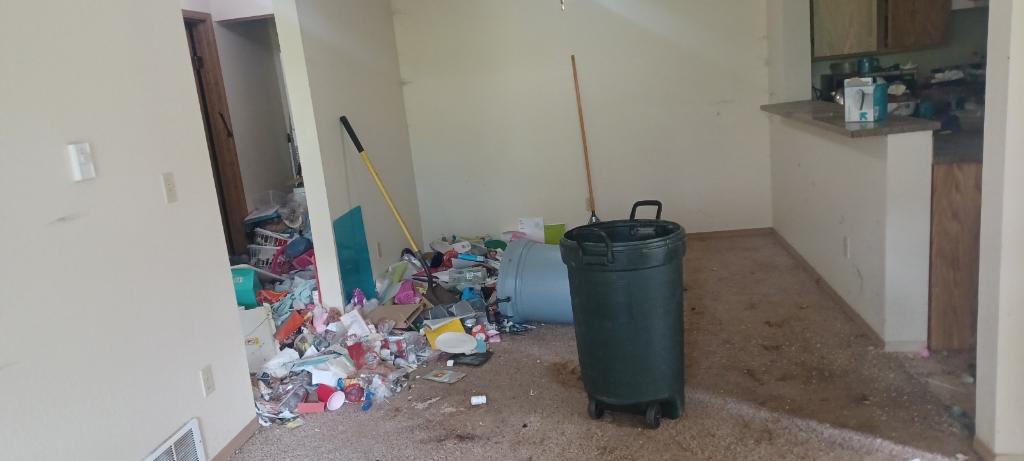
Dealing with the aftermath of a tenant’s death is not just a logistical challenge; it’s a situation that requires sensitivity, respect, and a clear understanding of legal responsibilities. For landlords and property managers, knowing exactly what’s expected of you can alleviate some of the stress and confusion during such a difficult time. It’s about more than just cleaning out a space; it’s about handling a person’s last remaining world with care.
When a tenant passes away, their apartment often contains their personal belongings, important documents, and memories that hold significant emotional value to friends and family. This makes the task of cleaning out the apartment a delicate matter. Landlords must navigate between respecting the deceased’s belongings and efficiently preparing the apartment for future tenants, all within the bounds of the law.
Who is responsible for cleaning out an apartment after a tenant dies?
The duty often falls on a few key players, each with a specific role to play in the process. Here’s a breakdown of who’s typically involved and what their responsibilities might include:
- Landlords: Primarily, the responsibility falls to the landlord or property management. Their role is to ensure that the property is respectfully and legally restored to a rentable condition. However, this doesn’t mean they can immediately clear out the apartment:
- Secure the property: Landlords must first secure the apartment, ensuring it’s locked and safe from unauthorized access.
- Notify the next of kin: It’s essential to contact the deceased tenant’s family or executor of the estate before any belongings are touched.
- Wait for legal clearance: In many jurisdictions, landlords need to wait for an official go-ahead from the tenant’s estate executor or receive a court order before disposing of any belongings.
- Family Members or Estate Executors: If the deceased has left behind a will, the executor named in the will typically takes over the responsibilities:
- Sorting personal belongings: It’s usually up to the family or the executor to sort through personal items, documents, and other significant belongings.
- Arranging for items to be removed: They must coordinate the removal of these items from the apartment, deciding what should be kept, donated, or discarded.
- Professional Cleaning Services: Depending on the state of the apartment, professional cleaners, especially those trained in biohazard situations, might be necessary:
- Handling hazardous situations: In cases where the tenant’s death has led to unsanitary conditions, professionals equipped to deal with biological hazards can be called in to ensure thorough cleaning and sanitization.
By understanding the distinct roles and legal requirements, those responsible can handle the situation with the necessary care and respect. Ensuring clear communication between all parties involved is key to a smooth and respectful resolution. This approach not only respects the memory of the deceased but also maintains legal integrity and emotional sensitivity throughout the process.
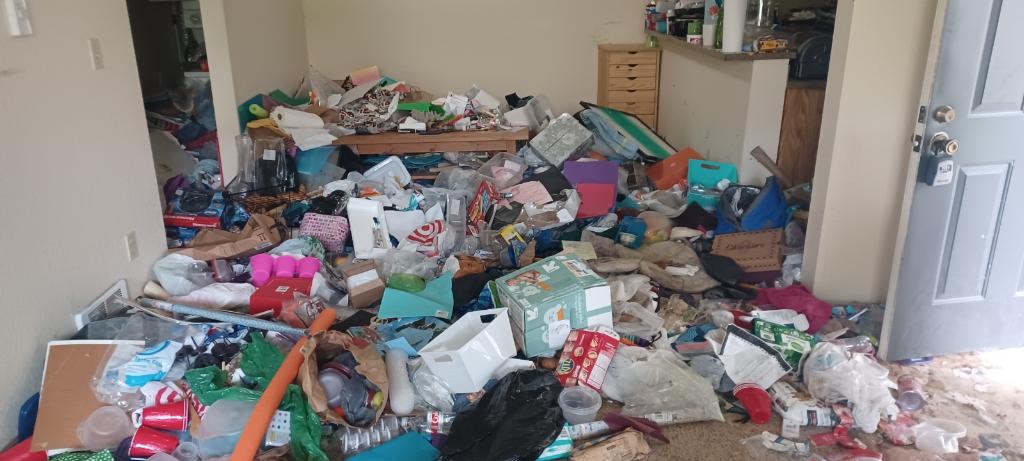
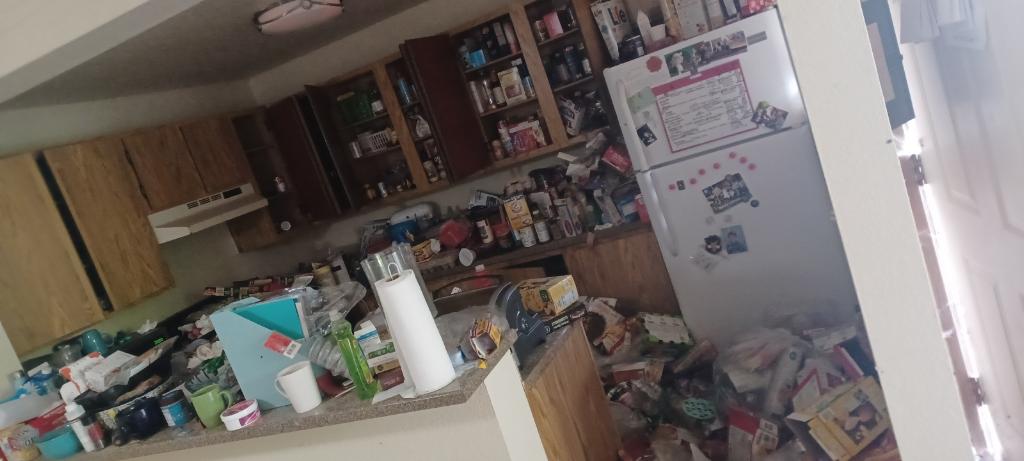

What are the landlord’s responsibilities if a tenant dies in the apartment?
When a tenant dies in an apartment, the landlord faces a set of responsibilities that need to be handled with both sensitivity and adherence to legal statutes. Understanding these obligations can help ensure that the process is managed respectfully and efficiently.
Immediate Actions:
- Secure the property: The first responsibility of the landlord is to secure the apartment, ensuring that it remains untouched until the proper legal procedures are followed. This includes changing the locks if necessary to prevent unauthorized access.
- Notify the authorities: If the death was unattended and discovered by the landlord or property management, it’s crucial to contact local authorities immediately to properly document the situation and begin official procedures.
Legal and Ethical Duties:
- Contact next of kin: It is important for landlords to promptly notify the tenant’s emergency contacts or next of kin about the death.
- Cooperate with the estate executor: The landlord should work closely with the appointed executor of the tenant’s estate or a legal representative who will manage the deceased’s affairs, including the retrieval and handling of personal belongings.
Property Management:
- Handling tenant’s belongings: Landlords must wait for instructions from the estate executor or follow court orders regarding the removal or disposal of the tenant’s personal items. Landlords generally cannot discard or sell a deceased tenant’s possessions without proper authorization.
- Cleaning the apartment: The actual cleaning of the apartment should ideally wait until after the family or executor has removed personal belongings. If professional cleaning is required, especially in cases of biohazard, it should be conducted by certified professionals.
By adhering to these guidelines, landlords can manage the delicate situation of a tenant’s death in the apartment with the appropriate level of respect and legality, ensuring that all parties’ rights are protected and the transition is as smooth as possible.
Are there specific laws in US about cleaning rental properties after a tenant’s death?
The legal landscape of cleaning rental properties after a tenant’s death involves understanding specific laws that can vary significantly across the United States. These laws are designed to protect both the rights of the deceased tenant’s estate and the property owner, ensuring a process that respects both parties’ interests.
State-Specific Legislation:
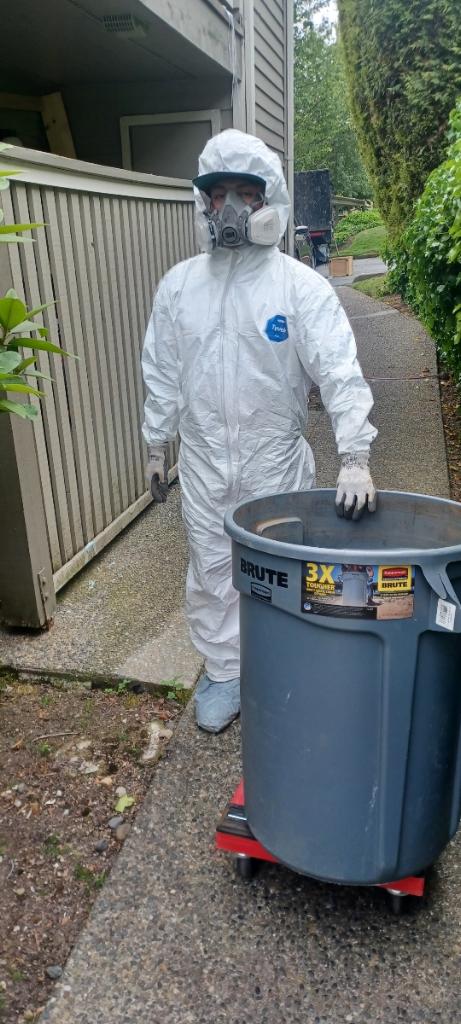
- Estate and Probate Laws: Most states have laws that outline how to handle a tenant’s belongings after their death, falling under estate and probate regulations. These laws dictate how items should be inventoried, valued, and distributed or disposed of, and they specify the roles and powers of executors or administrators.
- Landlord-Tenant Laws: Specific sections of state landlord-tenant laws address scenarios involving a tenant’s death, focusing on lease termination, rent responsibilities, and the handling of personal property left behind.
General Legal Principles:
- Notice Requirements: Landlords are typically required to notify the tenant’s next of kin or legal representative before disposing of any personal belongings. This notice period allows the family or executors to claim or manage the belongings.
- Handling and Storage: Laws may dictate how long a landlord must store a deceased tenant’s possessions before they can legally dispose of them, which can range from a few weeks to several months.
- Access to the Apartment: Legal guidelines also cover who can access the apartment to remove belongings and under what circumstances, ensuring that the process respects the tenant’s privacy and the family’s grieving process.
Key Considerations:
- Documentation: It’s crucial for landlords to keep thorough documentation throughout the process, including any communications with family members, notices sent, and actions taken. This documentation can be vital in case of disputes or legal scrutiny.
- Seek Legal Advice: Given the variability in laws from one state to another, landlords should consult with a local attorney who specializes in real estate or landlord-tenant law to ensure compliance with all applicable regulations.
The aim of these laws is to balance the need for landlords to regain control of their property for re-rental with the rights of the deceased’s estate to manage and retrieve personal assets. By following these legal frameworks, landlords can mitigate potential legal issues and move forward with the property management in a respectful and law-abiding manner.
Understanding and complying with these laws not only protects landlords from potential legal issues but also ensures that the process of cleaning out a rental after a tenant’s death is handled with dignity and respect for everyone involved.
Who pays for the cleanup of a deceased tenant’s apartment?
When a tenant passes away, the responsibility for the costs associated with cleaning their apartment can become a nuanced issue. Typically, who bears these costs depends on several factors, including the terms of the lease, state laws, and the specific circumstances of the tenant’s death.
Lease Agreements and Landlord Policies:
- Lease Terms: Often, the lease agreement might specify who is responsible for cleaning costs under various circumstances, including a tenant’s death. It’s crucial for landlords to review the lease terms to determine if there is any clause that addresses this scenario.
- Security Deposit: In many cases, the security deposit can be used to cover the costs of cleaning and repairs, provided these costs go beyond normal wear and tear. This is a common practice, but landlords must provide a detailed account of how every portion of the deposit is used.
Estate Responsibilities:
- Tenant’s Estate: If the cleanup involves significant effort due to the condition of the property (for example, in cases of hoarding or if there is significant damage), the costs might exceed the security deposit. In such cases, the remaining costs may legally fall to the tenant’s estate. The executor of the estate or the legal representative will handle these expenses.
Communication and Documentation:
- Open Lines of Communication: It is beneficial for landlords to maintain open and clear communication with the deceased tenant’s family or executor. This can help in negotiating and understanding who will handle various aspects of the cleanup and payments.
- Keep Detailed Records: Document all costs incurred during the cleanup process. This includes keeping receipts and detailed notes of the work required. Such documentation will be necessary if the costs are to be charged against the security deposit or claimed from the estate.
Handling the apartment cleanup costs of a deceased tenant’s apartment sensitively and legally not only ensures compliance but also maintains respect for the deceased and their family. By understanding these financial obligations, landlords can prepare to manage such situations effectively and compassionately.
How should belongings be handled in a rental property after a tenant’s death?
Handling the personal belongings of a tenant after their death is a sensitive task that requires careful consideration of legal, ethical, and practical factors. Here’s how to approach this delicate situation:
Step-by-Step Guidance on Handling Belongings
Immediate Steps:
- Secure the Property: Initially, ensure that the apartment is secured. This prevents theft and preserves the integrity of the tenant’s belongings.
Legal Considerations:
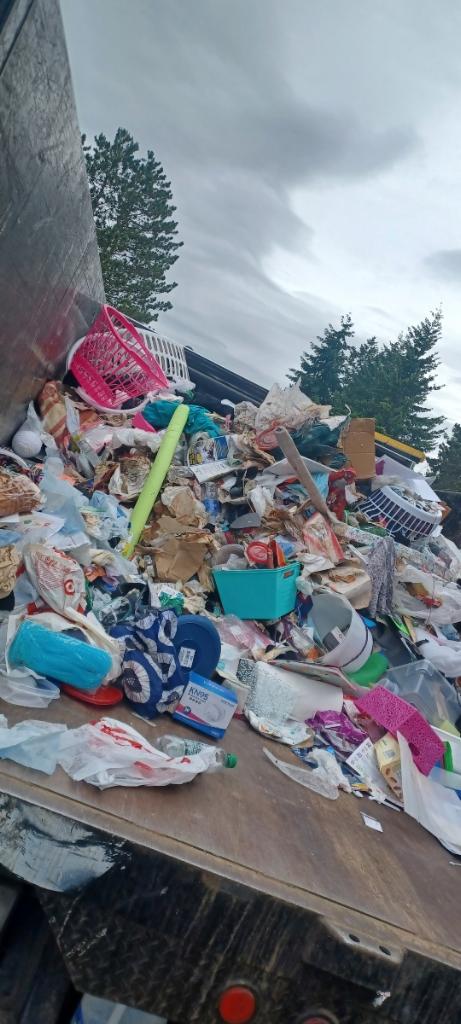
- Wait for Legal Authority: Landlords should not remove or disturb the tenant’s personal belongings until they have legal authorization to do so. This usually comes from the executor of the estate or through direct legal instruction.
- Notice to Relatives and Executor: It’s important to promptly notify the tenant’s known relatives or the executor about the death. This action not only provides them the opportunity to handle the personal belongings but also involves them in decisions about property clearance.
Handling and Distribution:
- Work with the Executor: The executor or legal representative has the authority to decide how the belongings should be handled. They may choose to remove, store, or dispose of items as per the deceased’s will or estate plan.
- Document Everything: Keep a detailed inventory of all items as they are handled. This documentation should include photographs and descriptions, which can be important for both the estate’s records and for resolving any potential disputes.
Ethical and Respectful Management:
- Respect Privacy: Handling someone’s personal items should be done with the utmost respect for their privacy and dignity. Avoid going through personal documents or items more than is necessary to accomplish the task at hand.
- Consider Emotional Impact: Remember that these items might have significant sentimental value to the family and friends. Handle them with care and consideration, acknowledging their emotional significance.
By following these guidelines, you can ensure that the process is handled appropriately, respecting the rights and memories of the deceased, while also fulfilling legal obligations.
How can landlords deal with the emotional impact of a tenant’s death on the community?
Dealing with the death of a tenant can have a profound emotional impact not only on the deceased’s family and friends but also on the wider apartment community. As a landlord, navigating this sensitive situation requires compassion, discretion, and an understanding approach to help mitigate the emotional toll on the community.
Open Communication:
- Inform with Sensitivity: Communicate the news to other tenants in a manner that is respectful and considerate. It’s important to balance transparency with privacy, providing enough information to address rumors but not so much detail that it infringes on the deceased’s confidentiality.
- Offer Support: Provide information about grief counseling services or local support groups. Letting tenants know that there are resources available can be very comforting.
Creating Spaces for Mourning:
- Memorial Options: Depending on the closeness of the community and the wishes of the family, consider organizing a small memorial or a moment of silence. This can provide closure and a space for tenants to express their grief collectively.
- Respectful Remembrance: Simple gestures like a communal card or flowers can also be significant for those who knew the deceased, showing that the community cares and acknowledges the loss.
Handling the Practicalities with Care:
- Discreet Clean-Up: When cleaning out the deceased’s apartment, be discreet. High visibility can often lead to discomfort or unnecessary distress among the neighbors.
- Professional Help: If the situation requires it, don’t hesitate to hire professional cleaners, especially if there are biohazard concerns. Ensuring that the clean-up is handled professionally can alleviate stress and health worries for the remaining tenants.
Ongoing Support and Monitoring:
- Check-In Regularly: After the initial announcement and memorial, continue to check in on your tenants. Some may process grief after some time has passed, and ongoing support can be crucial.
- Promote Community Healing: Organize community gatherings or activities that can help bring tenants together and foster a sense of solidarity and support. Activities like potlucks, movie nights, or group discussions provide opportunities for connection and healing.
By approaching the situation with empathy and careful consideration, landlords can help foster a supportive environment that helps the entire community navigate through the difficult time following a tenant’s death. It’s about more than just managing a property; it’s about caring for a community during times of loss.
Landlords must approach these situations with sensitivity and professionalism, ensuring that they adhere to legal guidelines while also providing support and understanding to those affected. Whether it’s through clear communication, respectful handling of belongings, or fostering community healing, the goal is to manage these challenging circumstances with compassion and respect.
For landlords and property managers, being prepared for such instances and knowing how to act can make a significant difference. It’s about providing stability in a time of loss, guiding the community through grief, and ensuring that the memory of the deceased is honored and respected.

